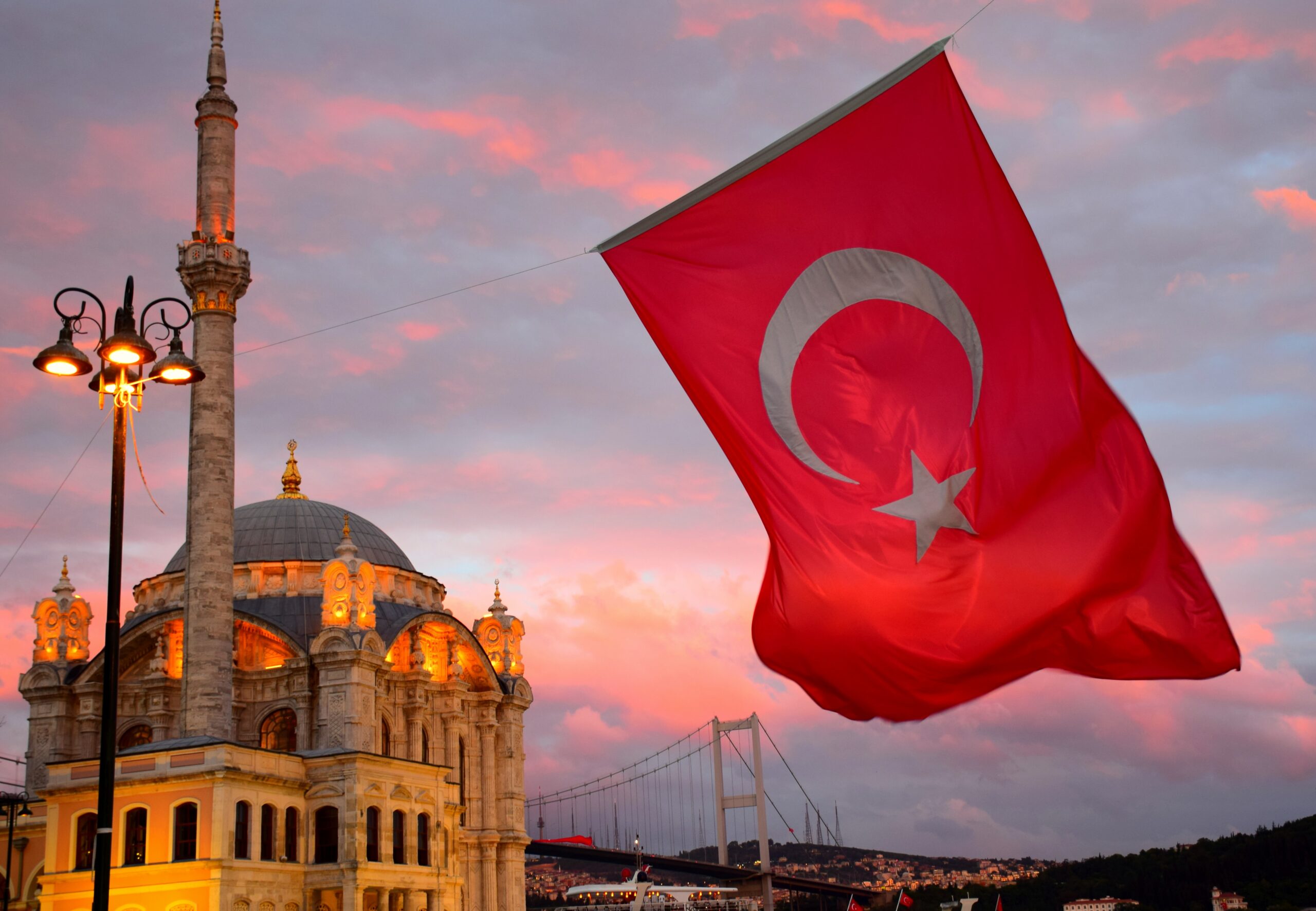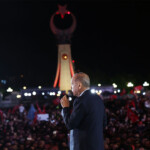Turkey’s regime has changed – arguably and most likely forever.
Let us cut to the chase. With the conclusion of the national runoff vote, Turkey’s regime has changed – arguably and most likely forever. The majority of the electorate has delivered its final verdict—no matter how much we argue about the small margin between the two presidential candidates—and Erdoğan has received a mandate to transform Turkey into an authoritarian state.
In other words, the majority of voters ratified his dream—the model of Turkey, which he had enforced (using the state of emergency) through a disputable referendum in April 2017. Given the circumstances, under which he has managed to prepare an oppressive setting ahead of the May 2023 elections, one which immensely disadvantages the opposition, it seems that Turkey’s transition to a one-man rule is now complete.
By and large, this historic process is irreversible. The Turkish Republic’s centennial—dominated for decades by a form of authoritarian secularism and military-dominated tutelage—is over. Now, a new era begins, with ultra-centralist rule under the strategic doctrine of “Turkish-Islamic Synthesis,” with a Sunni-Nationalist-dominated cultural hegemony.
The massive prayers held during the election campaign in the Hagia Sophia—deliberately converted to a mosque by Erdoğan to serve his strategy—marks a new centennial for Turkey. In many aspects, these political rituals will go down in history as the “funeral prayers” for the ancienne regime.
Let no illusions blind us. The elections have also confirmed a few more trends. First, keeping the crowds under his constant spell, Erdoğan has proven to be an efficient autocrat, securing his position at the top of the de-facto coalition which includes some of his older sworn enemies: Ultra-nationalists, and anti-western militarists as well as a dense layer of corrupt bureaucrats and business circles.
Second, by implementing a complex set of election laws, he has managed to help usher many parties into Parliament whose politicians are satisfied to represent their own personal or tribal interests rather than those of the electorate. The large majority of the newly elected deputies know, as well as Erdoğan, that they will attend an assembly, which will be no more than a “debating club” or “ rubberstamp office” given the domination of seats in the service for his palace.
In other words, Parliament will be a gallery of illusions. The pro-Kurdish party deputies, 61 of them, already demonized by Erdoğan in his victory speech, will feel Damocles’s Sword over their heads, because the ruler has all the means and “political climate” to criminalize them. The question is not if, but when. While the main-opposition party, the CHP, may face time-consuming internal frictions, the rest of the opposition will remain crippled.
The third point has to do with legitimacy. These deputies, along with the 52-48 % voting result, will also be extremely useful for Erdoğan’s claims to legitimacy before the world. He will argue that the presence of 15 parties in Parliament and the way the elections are conducted prove that “Turkish democracy works.” Indeed, the current barrage of congratulations coming from world leaders indicates that his presidency—and the hard-core rule that comes with it—will be greeted by many without reservations.
Fourth, both the media and academia will face even harder times. As already implied by Süleyman Soylu, the minister of the interior, the margins of labelling dissidents and opposition journalists as traitors will be narrowed further. The academicians who acted as overjoyed cheerleaders for the opposition bloc may be marked by a vindictive Erdoğan, who can demand that universities—privately owned by big business groups such as Koç and Sabancı—fire them. And there is an increasing danger that one of Turkey’s remaining independent universities, Boğaziçi, will fall prey to the devouring power in Ankara.
To those of us who have been monitoring Turkey for decades, the current moment of rupture is a foreseen development. In a February 2014 article for Le Monde Diplomatique German Edition, I defined Erdoğan’s rule as a “slow motion coup” in an aim to alert the domestic opposition, which seemed to have fallen into deep confusion. The strongman played his game skillfully, keeping both the opposition and the media hampered by internal fighting and managed to “stupefy” crowds across the social spectrum.
One of the illusions held by the oppositions’ elite cheerleaders was that “Turkey would show the world that an autocrat can be ousted at the ballot box.” This was the result of overestimating a political class which remains polluted by its populist, tribalist, utilitarian culture. The opposite has instead once again proven true. It is impossible to topple an authoritarian regime at the ballot box.
Umut Özkırımlı, an expert on nationalism and populism with Barcelona Centre for International Affairs (CIDOB), and Visiting Professor at Blanquerna – Universitat Ramon Llull refers to Steven Levitsky and Lucan Way in their recent book 𝑇ℎ𝑒 𝑁𝑒𝑤 𝐶𝑜𝑚𝑝𝑒𝑡𝑖𝑡𝑖𝑣𝑒 𝐴𝑢𝑡ℎ𝑜𝑟𝑖𝑡𝑎𝑟𝑖𝑎𝑛𝑖𝑠𝑚 (2020):
”Tilting the playing field in countries such as Hungary, the Philippines, Turkey, and Venezuela requires greater skill, more sophisticated strategies, and far more extensive popular mobilization. Prospective autocrats must first command sizeable electoral majorities, and then deploy plebiscitarian or hypermajoritarian strategies to change the constitutional and electoral rules of the game so as to weaken opponents. This is often achieved via polarizing populist or ethnonationalist strategies.”
Pointing to these “sizeable electoral majorities” and “populist and ethnonationalist strategies,” Özkırımlı argues that Erdoğan didn’t invent the game, but he sure plays it well.
“He created the perfect ‘uneven playing field’ and dependent electoral majority. The opposition did its best to win the rigged game, even embracing the populist-ethnonationalist strategies of its nemesis, and still failed. I don’t approve their tactical choices, but that was the best they could do under the circumstances, short of taking to the streets.”
“Turkey’s culture wars began a hundred years ago” he concludes. “It seems it will continue for another hundred.”
Given the consent of the crowds and and the rigid control of the state apparatus, Erdoğan may have already won the battle in this Kulturkampf. He will reign over a cultural hegemony, as “president for a lifetime”.


